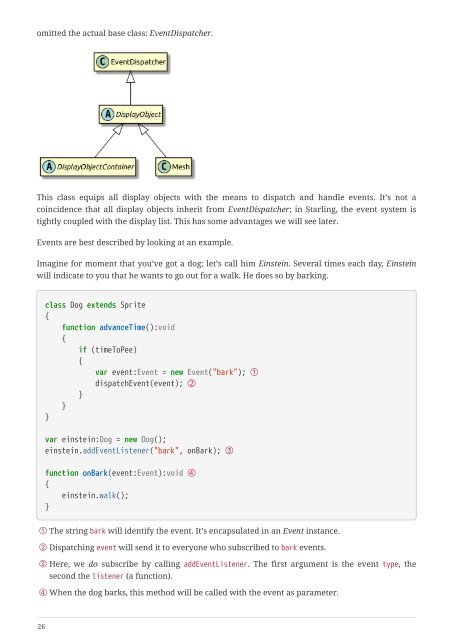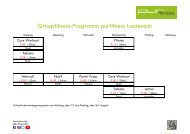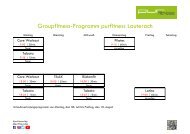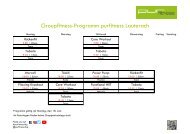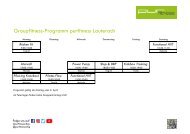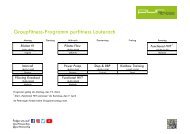You also want an ePaper? Increase the reach of your titles
YUMPU automatically turns print PDFs into web optimized ePapers that Google loves.
omitted the actual base class: EventDispatcher.<br />
This class equips all display objects with the means to dispatch and handle events. It’s not a<br />
coincidence that all display objects inherit from EventDispatcher; in Starling, the event system is<br />
tightly coupled with the display list. This has some advantages we will see later.<br />
Events are best described by looking at an example.<br />
Imagine for moment that you’ve got a dog; let’s call him Einstein. Several times each day, Einstein<br />
will indicate to you that he wants to go out for a walk. He does so by barking.<br />
class Dog extends Sprite<br />
{<br />
function advanceTime():void<br />
{<br />
if (timeToPee)<br />
{<br />
var event:Event = new Event("bark"); 1<br />
dispatchEvent(event); 2<br />
}<br />
}<br />
}<br />
var einstein:Dog = new Dog();<br />
einstein.addEventListener("bark", onBark); 3<br />
function onBark(event:Event):void 4<br />
{<br />
einstein.walk();<br />
}<br />
1 The string bark will identify the event. It’s encapsulated in an Event instance.<br />
2 Dispatching event will send it to everyone who subscribed to bark events.<br />
3 Here, we do subscribe by calling addEventListener. The first argument is the event type, the<br />
second the listener (a function).<br />
4 When the dog barks, this method will be called with the event as parameter.<br />
26


